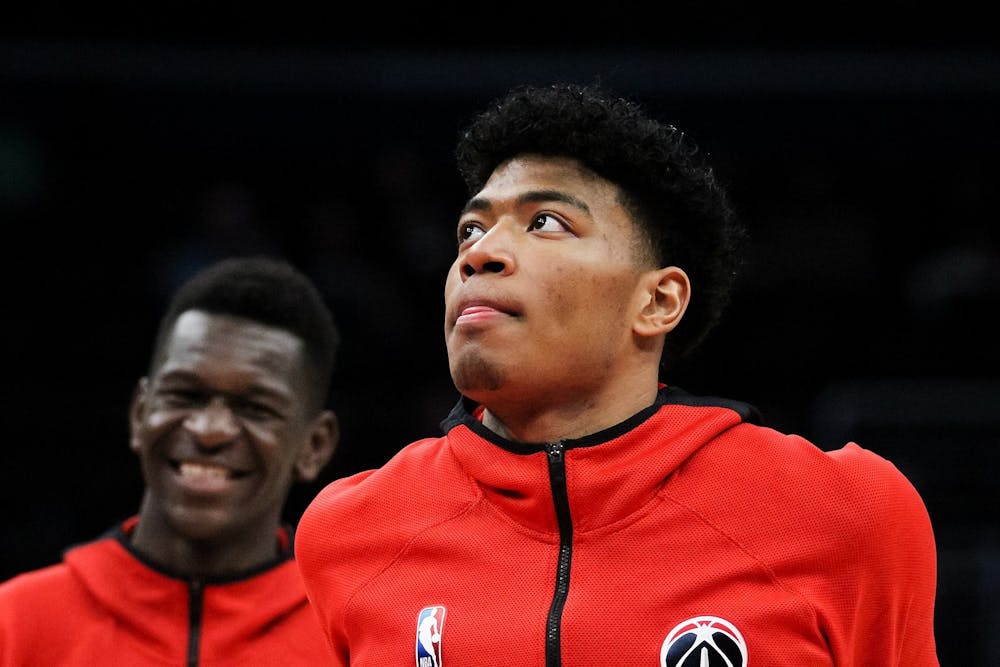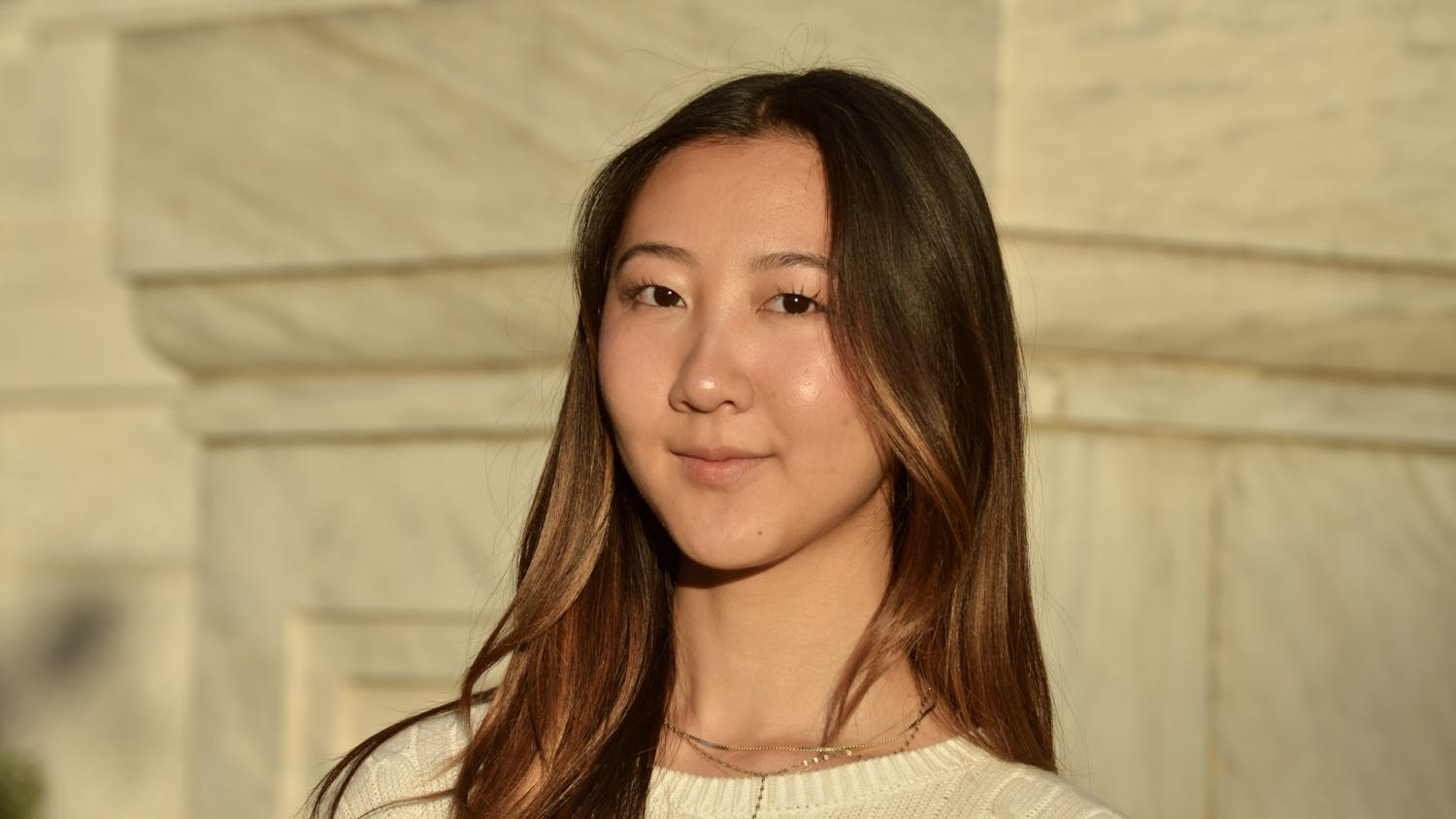Rui Hachimura returned to the court for the Washington Wizards on Jan. 9, in a victory over the Orlando Magic. Hachimura hadn’t played in an NBA game since the Wizards were eliminated from the playoffs by the Philadelphia 76ers on June 2 and hadn’t played organized basketball since the Japanese national team was eliminated from Olympic competition on Aug. 1.
Hachimura texted the Wizards coaching staff ahead of preseason training camp in September that he would not be in attendance. This absence extended through the first half of the NBA season as Hachimura reportedly rehabilitated his mental health privately, making Hachimura another athlete in the growing number who take time away from their sport for personal reasons.
Over the summer, the Wizards forward competed in the Tokyo Olympics, representing his home country Japan. Hachimura, the second Japanese-born player to ever be drafted to the NBA and the first-ever to be drafted in the first round, is one of Japanese sports’ biggest superstars. He was chosen as one of two flag bearers for the Olympic ceremonies and was positioned to lead the basketball squad’s first appearance in the competition since the 1976 Montreal Olympics.
A few weeks after Japan’s elimination from their home Olympics, he would be absent from preseason practices with the Wizards in D.C. It was Hachimura’s first extended break from basketball in 10 years. He started playing competitively, year-round, at 13-years-old.
Hachimura’s basketball sabbatical came in the wake of a growing conversation about mental health in the NBA and sports as a whole. In perhaps the highest-profile story of the NBA season thus far, Philadelphia star Ben Simmons has refused to take the court for the 76ers, in part to preserve his mental health. In a November statement to the media, his agent Rich Paul stated that the team’s treatment of Simmons, including “fines, the targeting, the negative publicity shined on the issue,” has “furthered the mental health issues for Ben.”
In 2018, the NBA launched its mental health initiative, NBA Mind Health. The goal of the program is to encourage mental health conversations and “help players, staff, youth and fans access mental health professionals and resources.”
A key issue figures within the NBA Mind Health program see when it comes to player mental health is fan perception and treatment of athletes.
“There’s the idea that they are superhuman,” NBA Mind Health Director Dr. Kensa Gunter explained in an interview with Forbes. “Seeing that dominant image might result in the average person not thinking about the players’ lives, not thinking about people navigating relationships and experience stress in different ways, not seeing the regular person.”
Athletes in the past have spoken up about struggling with and navigating the pressures both of being a professional athlete and managing everyday stressors on top of the tasks of an athlete.
Cleveland Cavaliers star Kevin Love has been one of the most vocal players in the league to openly address mental health, detailing his struggles with depression and anxiety. In a 2018 Players Tribune essay, Love revealed that he had suffered a panic attack during a Monday night matchup against the Atlanta Hawks. He said the incident changed “everything about the way I think about my mental health.”
“If you’re suffering silently like I was, then you know how it can feel like nobody really gets it,” Love penned. “Mental health isn’t just an athlete thing … this is an everyone thing. No matter what our circumstances, we’re all carrying around things that hurt — and they can hurt us if we keep them buried inside.”
Unfortunately for Hachimura, along with countless other non-American athletes, open conversation about mental health is even more stigmatized abroad than it already is in the United States.
Masami Horikawa, a sports psychology researcher at Kwansei Gakuin University in Nishinomiya, Japan, detailed the difficulty Japanese athletes face when confronted with mental health challenges.
“Not all pressure is bad, but as a culture, Japanese people expect that individuals can accomplish everything, and perfectionism is seen as a beauty,” Gakuin told The Washington Post. “So as a culture, we expect and praise individuals who are able to succeed all on their own without any help.”
Hachimura, returning to a basketball club in turmoil, is taking it slow. His minutes from his prior two seasons have been almost halved, working to get back into NBA shape on a roster that now looks drastically different from when he last played.
Wes Unseld Jr., the Wizards’ new head coach, is learning on the fly how to implement Hachimura into his team. He said he plans to keep Hachimura’s role “simple as he reacclimates” and that the team and front office has been working in alignment with Hachimura and his representation throughout the process.
Rui Hachimura’s journey back to the NBA has been just one of many stories, told and untold, of high-profile athletes learning to balance mental health while in one of the brightest spotlights in entertainment media. Hopefully, sometime soon, Hachimura can get back to playing how he had been before his basketball sabbatical and his story can inspire other athletes to address any mental health needs they have, big or small.





